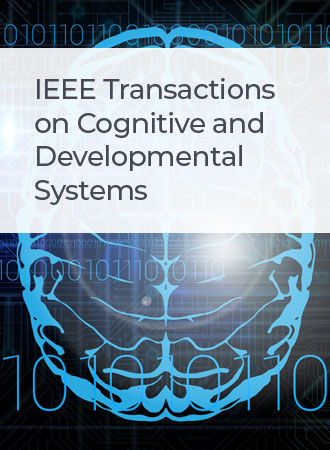Neighborhood-Curiosity-Based Exploration in Multiagent Reinforcement Learning
IF 4.9
3区 计算机科学
Q1 COMPUTER SCIENCE, ARTIFICIAL INTELLIGENCE
IEEE Transactions on Cognitive and Developmental Systems
Pub Date : 2024-09-13
DOI:10.1109/TCDS.2024.3460368
引用次数: 0
Abstract
Efficient exploration in cooperative multiagent reinforcement learning is still tricky in complex tasks. In this article, we propose a novel multiagent collaborative exploration method called neighborhood-curiosity-based exploration (NCE), by which agents can explore not only novel states but also new partnerships. Concretely, we use the attention mechanism in graph convolutional networks to perform a weighted summation of features from neighbors. The calculated attention weights can be regarded as an embodiment of the relationship among agents. Then, we use the prediction errors of the aggregated features as intrinsic rewards to facilitate exploration. When agents encounter novel states or new partnerships, NCE will produce large prediction errors, resulting in large intrinsic rewards. In addition, agents are more influenced by their neighbors and only interact directly with them in multiagent systems. Exploring partnerships between agents and their neighbors can enable agents to capture the most important cooperative relations with other agents. Therefore, NCE can effectively promote collaborative exploration even in environments with a large number of agents. Our experimental results show that NCE achieves significant performance improvements on the challenging StarCraft II micromanagement (SMAC) benchmark.多代理强化学习中基于好奇心的邻域探索
协作式多智能体强化学习的有效探索在复杂任务中仍然是一个棘手的问题。在本文中,我们提出了一种新的多智能体协作探索方法,称为基于邻域好奇心的探索(NCE),通过这种方法,智能体不仅可以探索新的状态,还可以探索新的伙伴关系。具体来说,我们使用图卷积网络中的注意机制来对邻居的特征进行加权求和。计算得到的注意权值可以看作是agent之间关系的体现。然后,我们使用聚合特征的预测误差作为内在奖励来促进探索。当智能体遇到新的状态或新的伙伴关系时,NCE会产生很大的预测误差,从而产生很大的内在奖励。此外,在多智能体系统中,智能体受邻居的影响更大,只能与邻居直接交互。探索代理与其邻居之间的伙伴关系可以使代理捕捉到与其他代理之间最重要的合作关系。因此,NCE可以有效地促进协作探索,即使在具有大量代理的环境中。我们的实验结果表明,NCE在具有挑战性的《星际争霸2》微管理(SMAC)基准测试中取得了显著的性能改进。
本文章由计算机程序翻译,如有差异,请以英文原文为准。
求助全文
约1分钟内获得全文
求助全文
来源期刊

IEEE Transactions on Cognitive and Developmental Systems
Computer Science-Software
CiteScore
7.20
自引率
10.00%
发文量
170
期刊介绍:
The IEEE Transactions on Cognitive and Developmental Systems (TCDS) focuses on advances in the study of development and cognition in natural (humans, animals) and artificial (robots, agents) systems. It welcomes contributions from multiple related disciplines including cognitive systems, cognitive robotics, developmental and epigenetic robotics, autonomous and evolutionary robotics, social structures, multi-agent and artificial life systems, computational neuroscience, and developmental psychology. Articles on theoretical, computational, application-oriented, and experimental studies as well as reviews in these areas are considered.
 求助内容:
求助内容: 应助结果提醒方式:
应助结果提醒方式:


